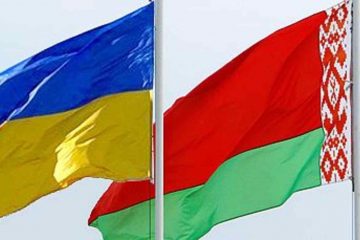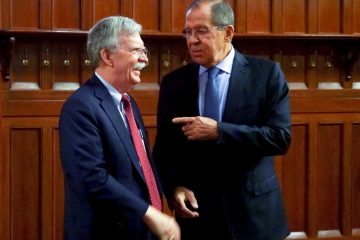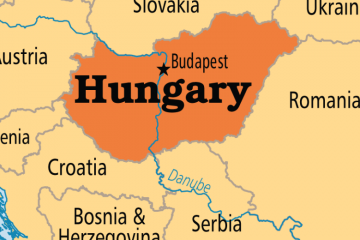BUDAPEST — Chancellor Angela Merkel on Monday ruled out any German supply of weapons to Ukraine, but emphasized that Europe must stay united against Russian aggression.
As long as Russia violates international law with its occupation of Crimea and actions in eastern Ukraine, Ms. Merkel said, sanctions against Russia must remain in place.
Even if the Obama administration should decide to provide defensive and even some lethal weapons to Ukraine, as it is reportedly considering, Germany will not follow suit, she said at a news conference, adding: “I am convinced that this conflict cannot be solved militarily.”
Ms. Merkel’s visit to Hungary was her first since Prime Minister Viktor Orban won re-election in 2010. While formally allied with the German leader in the center-right bloc in the European Parliament, Mr. Orban has irked Berlin and other capitals in recent months by cultivating ties with Moscow and pursuing policies that his critics view as authoritarian.
In a speech last summer that was widely perceived as influenced by President Vladimir V. Putin of Russia, Mr. Orban emphasized the virtues of what he labeled “illiberal” democracy. At Monday’s unsmiling joint news conference, after he again rebuffed Ms. Merkel’s definition of democracy, she shot back: “I cannot understand the word illiberal in connection with democracy.”
As she has with recent challenges to her policies, including from the European Central Bank and the voters of Greece, Ms. Merkel adhered to her message.
“We talked about the development of our civil societies, and I pointed out that even when you have a broad majority, as the Hungarian prime minister does, it is important to value the role of the opposition, of civil society, of the media,” she said. “Our societies thrive when these groups jostle with each other to find the best way forward, and I think that is also an important model for Hungary.”
Ms. Merkel did not publicly mention Mr. Orban’s ties with Mr. Putin, or that the Russian leader himself would be coming in two weeks, but she was unequivocal in her criticism of Moscow.
“What Russia is visiting upon Ukraine is a violation of our European system of peace and security,” she said during a lively question-and-answer session with students. Moscow’s desire to keep Ukraine from pursuing its individual course, she said, illustrated “the old pattern of thought that neighboring states are spheres of influence, and not partners.”
During her visit, the White House announced that Ms. Merkel would fly to Washington to meet on Monday with President Obama. The White House said the agenda would include Ukraine, Russia, counterterrorism, the extremist group the Islamic State, Afghanistan and Iran, as well as economic growth, international trade, climate change and Germany’s plans for hosting the Group of 7 summit meeting in June.
Ms. Merkel, in her 10th year as chancellor, while often regarded as the European leader, has recently seen her authority in Europe under challenge. First it was the European Central Bank and its decision — opposed by Berlin — to proceed with quantitative easing, or bond purchasing, to push money into Europe’s flagging economy. Then Greek voters rejected austerity measures imposed by Germany and others in exchange for large debt bailouts.
Mr. Orban’s apparent pivot to Moscow last year was also seen as a challenge. However, in recent weeks he has sent signals — including a visit to European Union headquarters in Brussels — that he is leaning more to the West.
Ms. Merkel arrived with a message, said Peter Kreko, director of the Political Capital Institute, a nongovernmental organization in Budapest. It was: “This dance between East and West is not sustainable any more. You have to take sides.”
Mr. Orban, Mr. Kreko added, “understands this more and more,” and is doubtless aware that 300,000 Hungarians owe their jobs to German companies.
In addition, last week, observing the 70th anniversary of the liberation of Auschwitz, Mr. Orban for the first time acknowledged that Hungarians — and not just the Nazis — had played a role in the annihilation of 600,000 Hungarian Jews in the Holocaust.
Ms. Merkel spent some time at Budapest’s main synagogue meeting Jewish leaders.
One of the leaders, Slomo Koves, executive rabbi of the Unified Hungarian Jewish Congregation, said Ms. Merkel specifically wanted to know about the far-right Jobbik party, which finished third in last year’s parliamentary elections with about 20 percent of the vote.
On Sunday, at a boisterous rally by roughly 3,000 to 4,000 opponents of Mr. Orban, demonstrators welcomed Ms. Merkel.
http://www.nytimes.com/2015/02/03/world/german-chancellor-rules-out-weapons-aid-to-ukraine.html





Comments